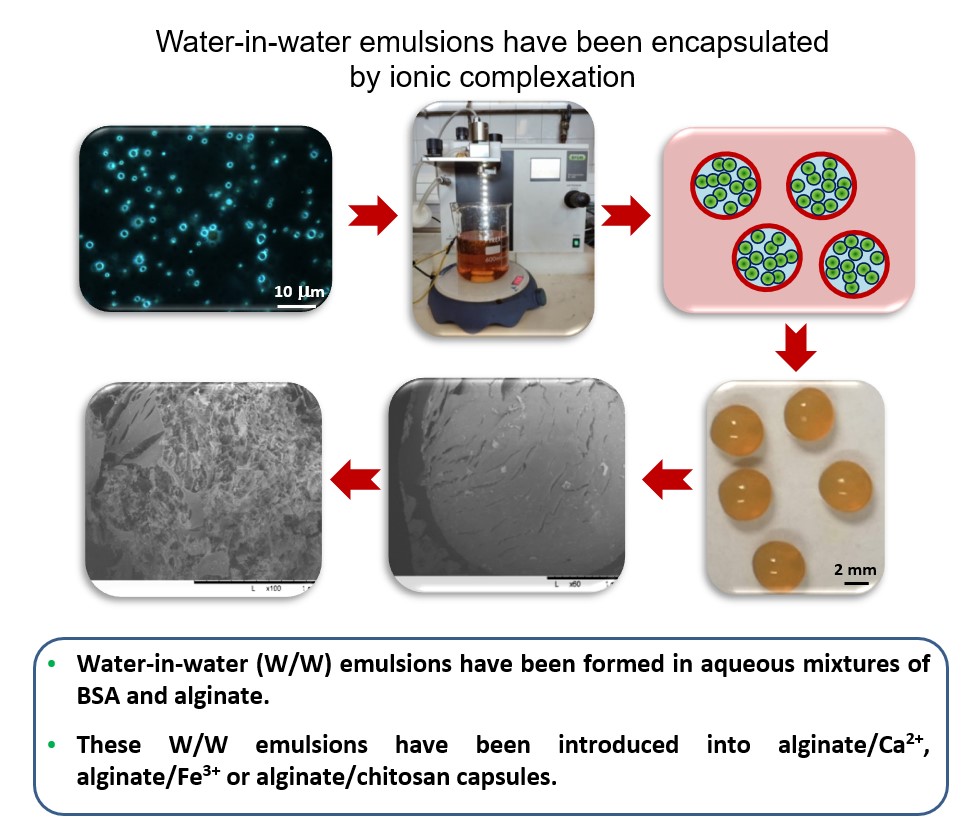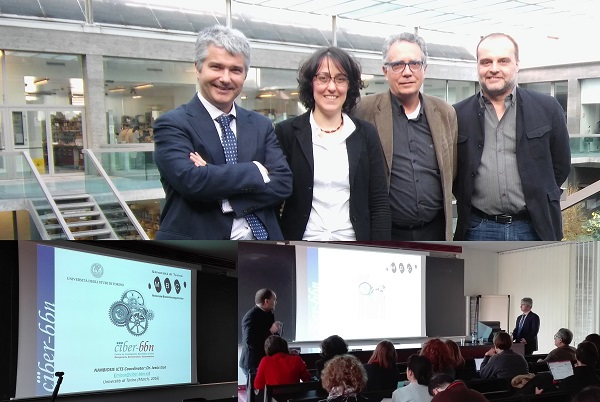Encapsulation of BSA/alginate water–in–water emulsions by polyelectrolyte complexation
Researchers of NANBIOSIS U12. Nanostructured liquid characterization unit from CIBER-BBN and IQAC-CSIC have recently published an article entitled Encapsulation of BSA/alginate water–in–water emulsions by polyelectrolyte complexation in the scientific journal Food Hydrocolloids
The research which results are published involves the encapsulation of drops of water-in-water emulsions, which could be used as vehicles for the administration of active principles.
Characterization of emulsions and capsules was performed in the Unit 12 of NANBIOSIS Nanostructured Liquid Characterization Unit.
Water-in-Water (W/W) emulsions were prepared in aqueous mixtures of an anionic polyelectrolyte (sodium alginate, NaAlg), with a globular protein (bovine serum albumin, BSA). This combination showed phase separation at two different intervals of pH, and their phase behavior was studied. BSA-in-alginate emulsions were obtained and dropped into Ca2+, Fe3+ or chitosan solutions, forming capsules with diameters around 2–4 mm, by ionic complexation of sodium alginate, located in the continuous phase of the emulsions. The results showed a strong dependence on the cation or polycation. Capsules prepared with Ca2+ were not robust and collapsed during freeze-drying, while Fe3+ induced the gelation of the interior of capsules, even at short (5 min) contact time. Better results were obtained when encapsulating with chitosan and applying longer immersion times. In these capsules, the liquid interior contained well-preserved BSA-in-alginate emulsions droplets, identical to the initial emulsions before encapsulating. Freeze-dried spherical capsules prepared with alginate/Fe3+ or alginate/ chitosan shells had smooth surfaces, and a highly porous interior, templated by the presence of W/W emulsion droplets.
Article:
M. Michaux, N. Salinas, J. Miras, S. Vílchez, C. González-Azón, J. Esquena,
Encapsulation of BSA/alginate water–in–water emulsions by polyelectrolyte complexation, Food Hydrocolloids, Volume 113, 2021, 106406,










